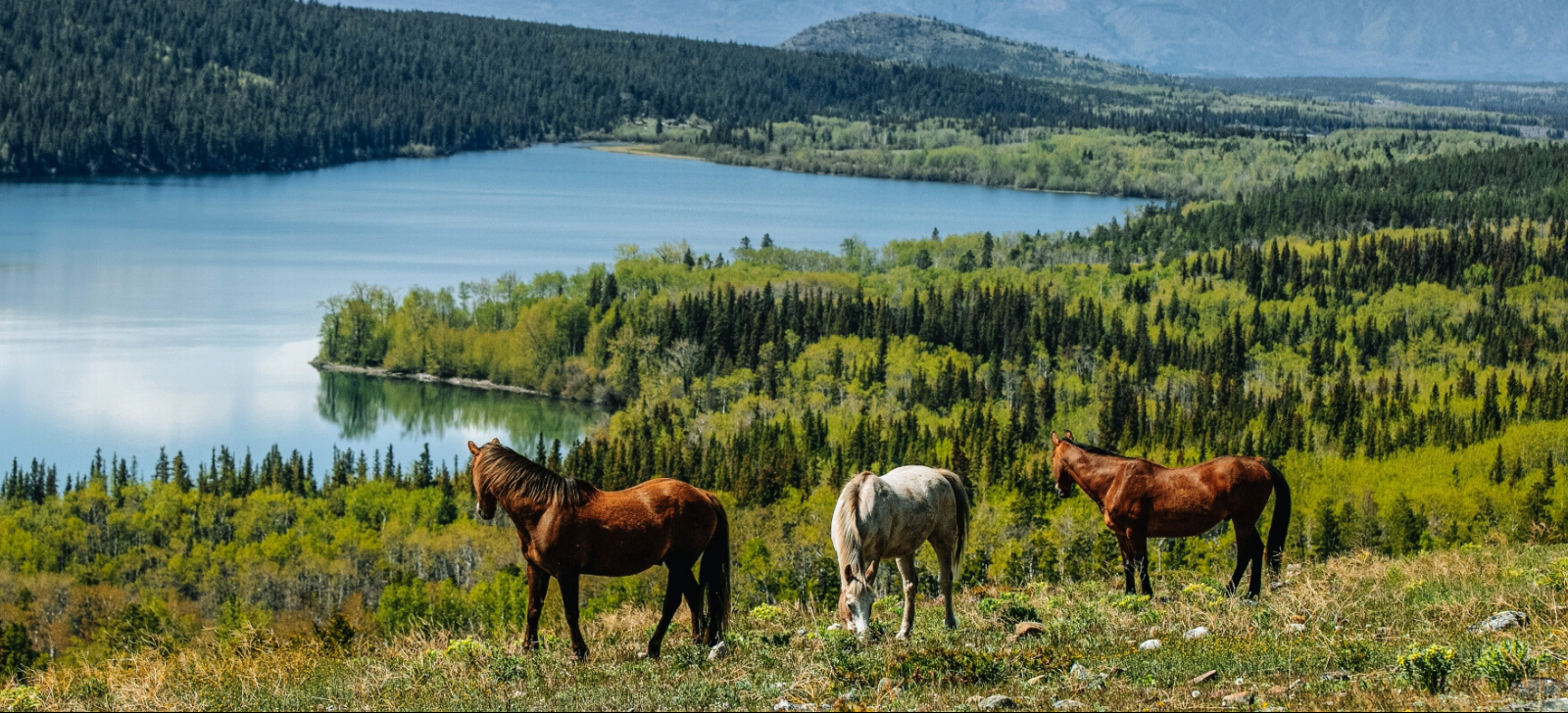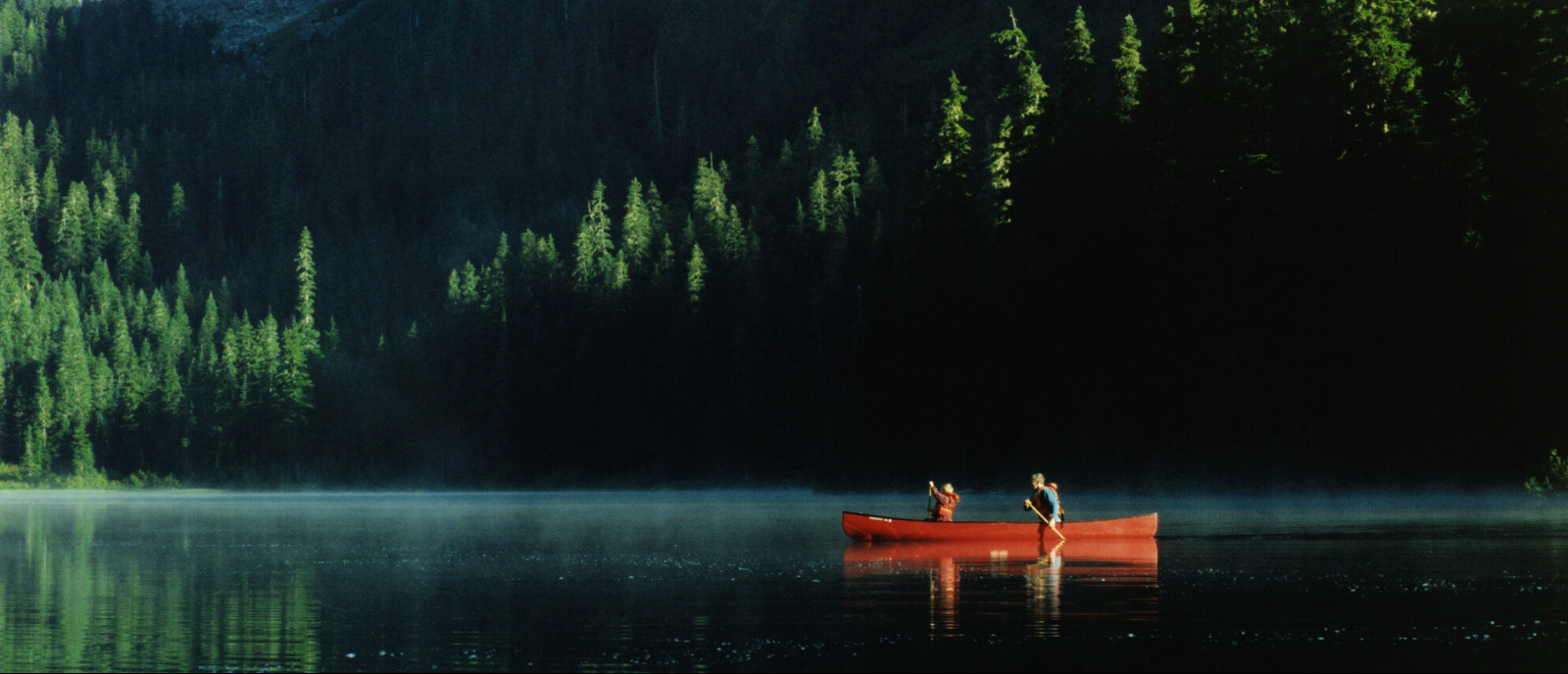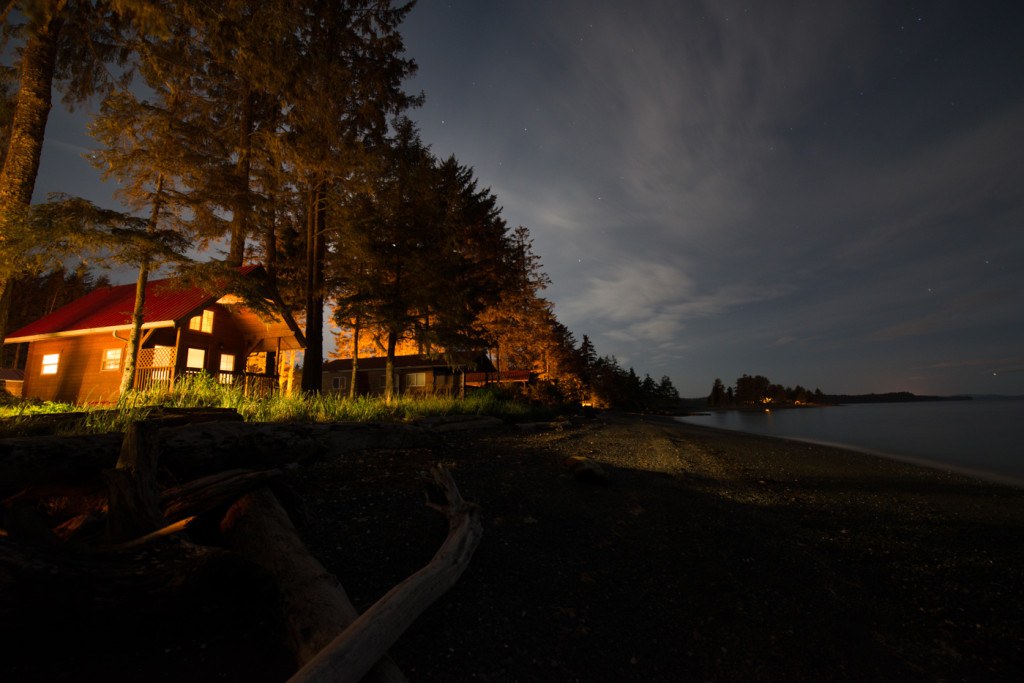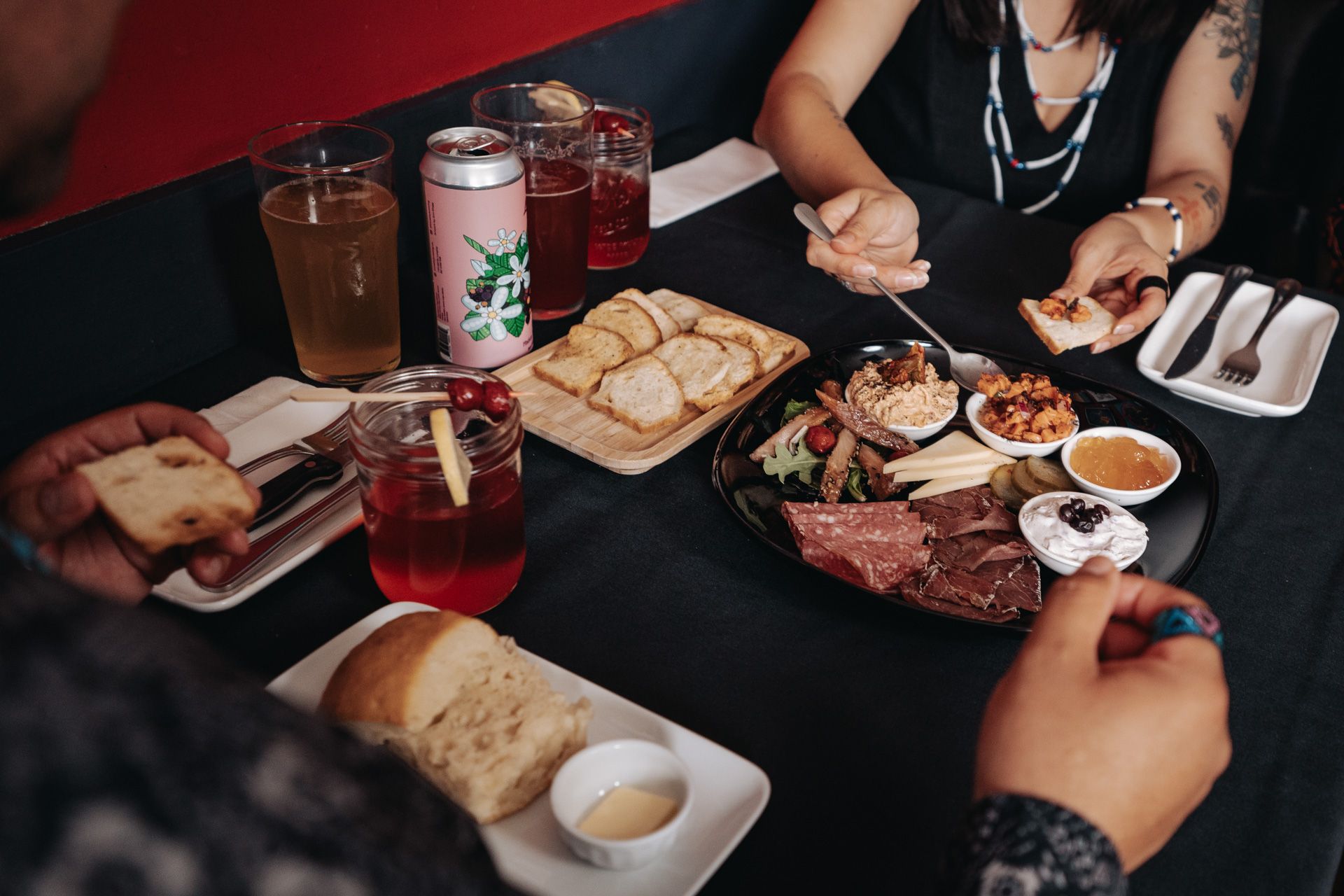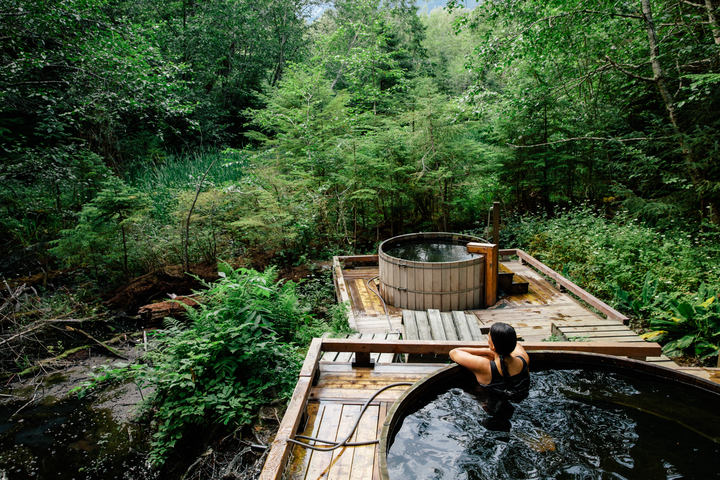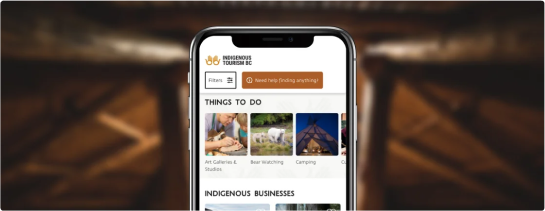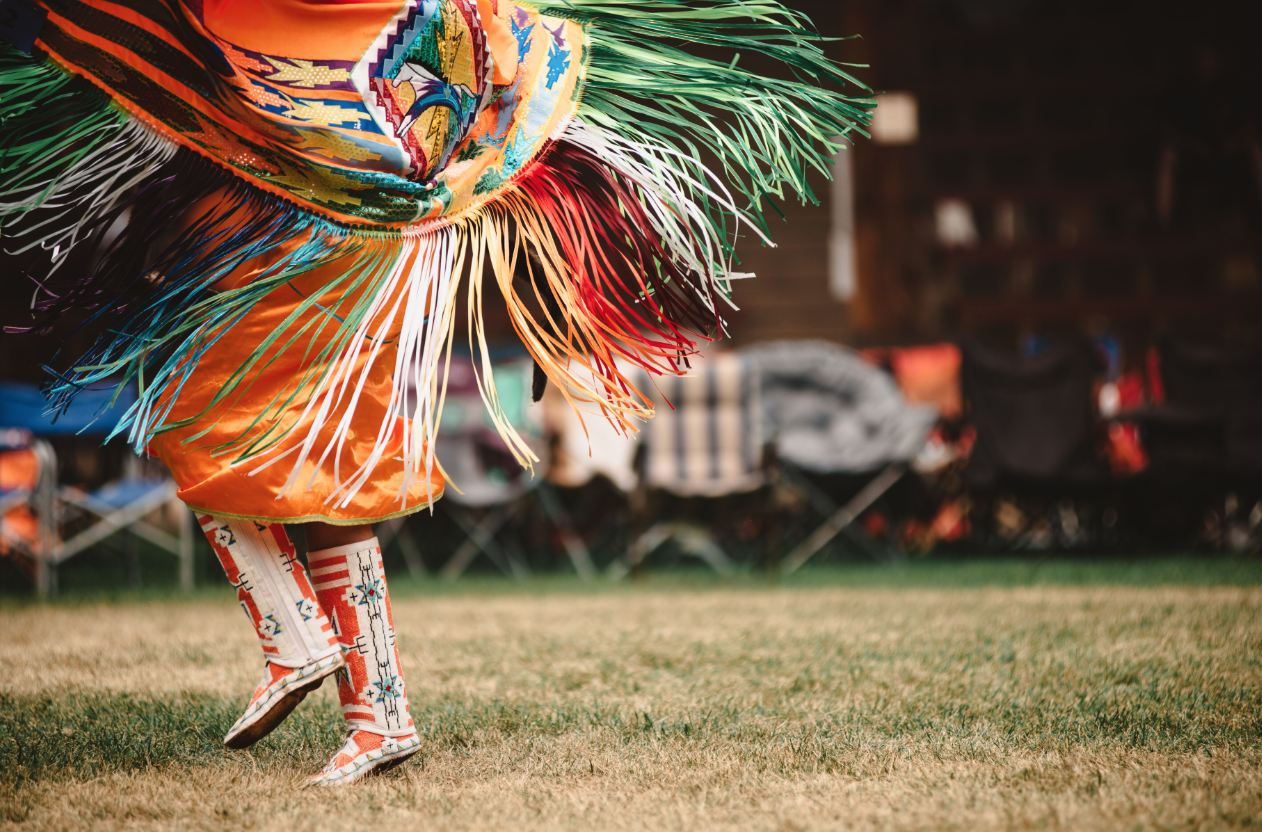
You’re Invited
Powwows are Indigenous community celebrations of culture and the best excuse to appreciate art, dance, food, song, and laughter. They can be ceremonial or competitive with cash prizes, indoor or outdoor events, for community members only or open for the public, to join in the celebration of both Indigenous uniqueness and unity.
Powwows allow all to come together, share culture, and build relationships.
Indigenous Rights, Cultural Resurgence, and Modern Powwow
Not all Indigenous communities in BC practiced powwow pre-contact. Canada’s Indian Act prohibited powwows and other expressions of culture from 1876-1951–but these celebrations were kept alive in secret.
In 1951, the Indian Act was amended with consultation of Indigenous Peoples for the first time ever. It removed some, not all, of the most restrictive and discriminatory regulations, including powwow prohibition. This renewed freedom of cultural expression, the growing Indigenous rights movement, and increasing interconnectedness led to a more widespread participation in powwow.
Cross-cultural Sharing and Good Fun
Powwow has always been a way to join with others–from other language groups or geographic areas–and to learn directly from each other about each other. Given the history of cultural prohibition, and many other tactics deployed to erase Indigenous cultures in Canada, it is more important than ever for non-Indigenous Canadians to accept the invitation to witness, honour, and celebrate along with Indigenous Peoples.


The Heartbeat of the Drum
Get ready for it. You’ll feel the drum in your chest even before you enter the arbour. The host drum often travels a long way to share their songs—without the drum, there is no powwow. Every twirl and sweeping step of the dancers pays respect to the drum. Let its heartbeat connect you to the land; look around and give thanks for the place you are in and the people you are with.
A powwow is a not a performance dedicated to public entertainment, but an opportunity to accept an invitation from an Indigenous community as a guest and a witness.
It is as it always has been–a place to share culture, learn from each other, and spend time with family and friends, making new connections.
Get to know your hosts.
The powwow committee and host community prepare for their guests with care. Often, hundreds of visitors are treated to free meals, camping, and chances to learn more about the culture and traditions of the community. Every community is different and it is best to be prepared.
Bring your own chairs and fuel up your vehicle if the powwow is in a remote location.
Don’t miss grand entry.
This is the opening of the powwow and your chance to see dancers of all styles enter the arbour in a show of colour, culture, and beauty. The parade of dancers in intricate beadwork, silver jingles, satin ribbon, and natural materials like deerskin and shells is led by the Flag Carriers, Veterans, and Head Dancers. Stand to show respect.
Ask and listen.
The MC is not just there to tell the best bad jokes you have ever heard but to give specific instructions and ensure everybody knows what is happening.Photography and video are usually fine.
Your MC will let you know if your photography is not appropriate—like when a dancer loses an eagle feather or a family shares an honour song. Show courtesy and ask permission before you go for a tight shot of an adorable tiny tot dancer or remarkable regalia, which often carries deep personal or spiritual significance.
Bring cash.
Powwows are usually not for profit, though some have a small daily or weekend attendance fee. This money keeps the powwow motor running and pays for things like the MC, community meals, and prizes for the dancers. Support local and Indigenous communities by buying an arm’s-length of raffle tickets or a traditional craft from a vendor.
Come and go.
You can check in for a couple of hours or camp out for the whole weekend. A three-day powwow in the summer heat requires endurance.There are frequent windows for rest which allow the athletic dancers, honoured Elders, and attentive audience a chance to seek shade, visit, eat, and get ready for the next song.
Intertribal means you. It really does.
It doesn’t matter if you are Indigenous or dressed in regalia.When the MC calls an intertribal, get up and dance.
Watch the feet of somebody who knows what they’re doing and join in. Take your children and celebrate the chance to come together in a good way.
Powwows in BC to check out:
Earl Marriott Semiahmoo First Nation Community Pow Wow, March 7-9, 2025; Surrey, BC
3rd Annual TRU Powwow Honouring Our Children, March 15, 2025; Kamloops, BC
22nd Annual Honouring Our Women Pow Wow, April 26 & 27, 2025; Barriere, BC
Yaqan Nukiy Pow Wow, May 16-18, 2025; Creston, BC
Squamish Nation Youth Powwow, July 11-13, 2025; West Vancouver, BC
Pow Wow Between the Lakes, July 18-20, 2025; Penticton, BC
4th Annual stɑl’əw̓ Pow Wow, September 12-14, 2025; Langley, BC
Lil’wat Celebrations Powwow, June 6-8, 2025; Mount Currie, BC
*Know of a Powwow that should be on this list? Submit it here.
